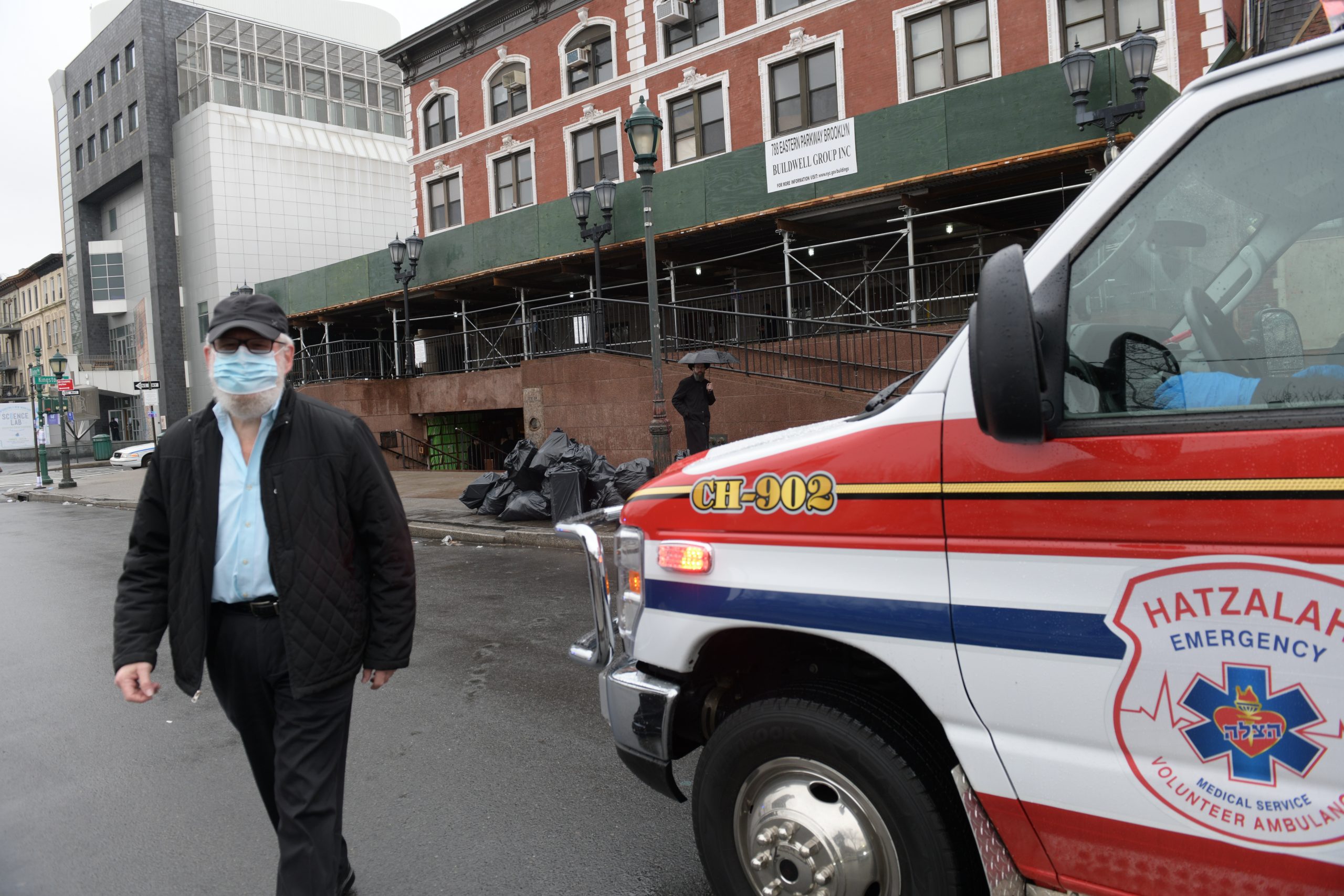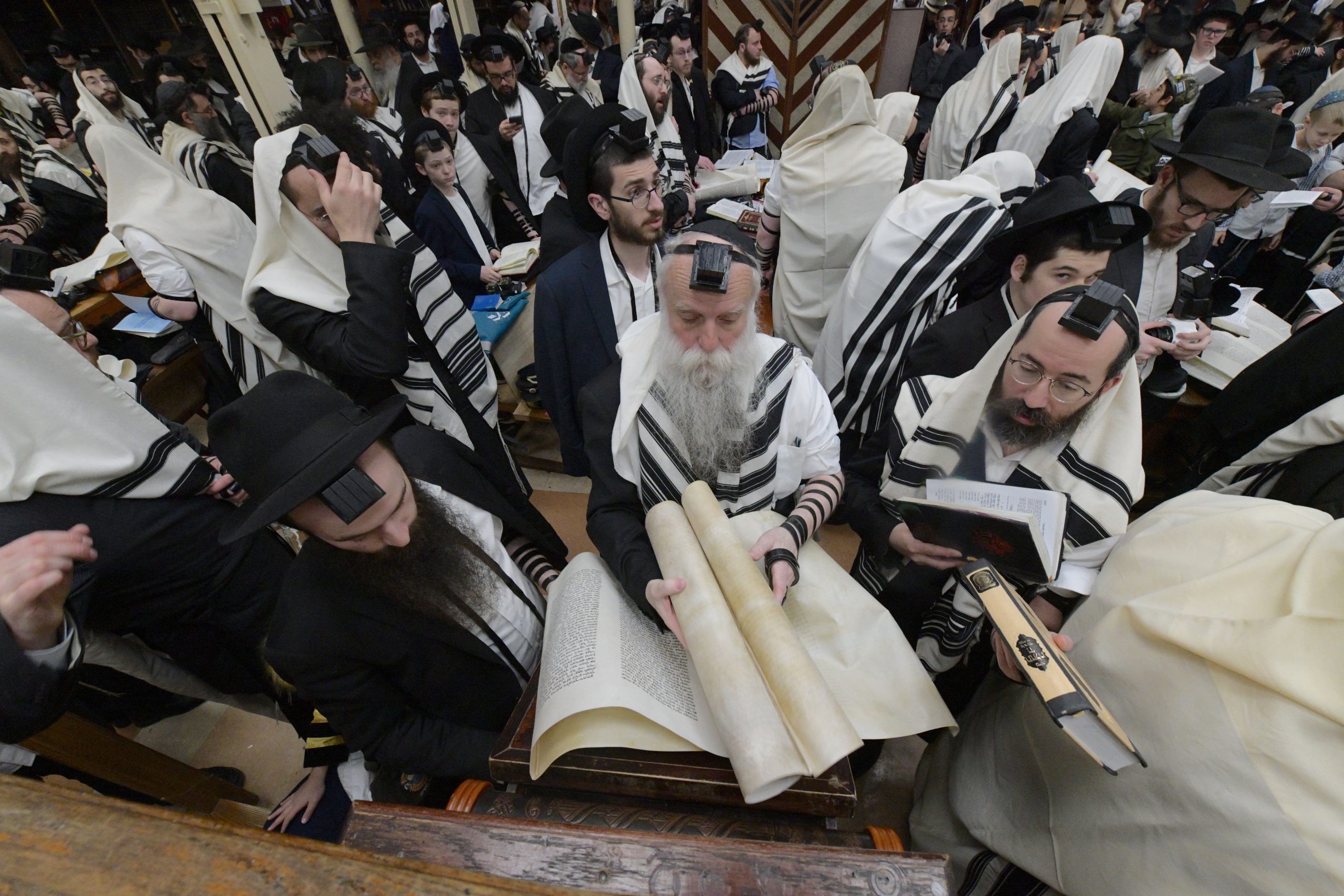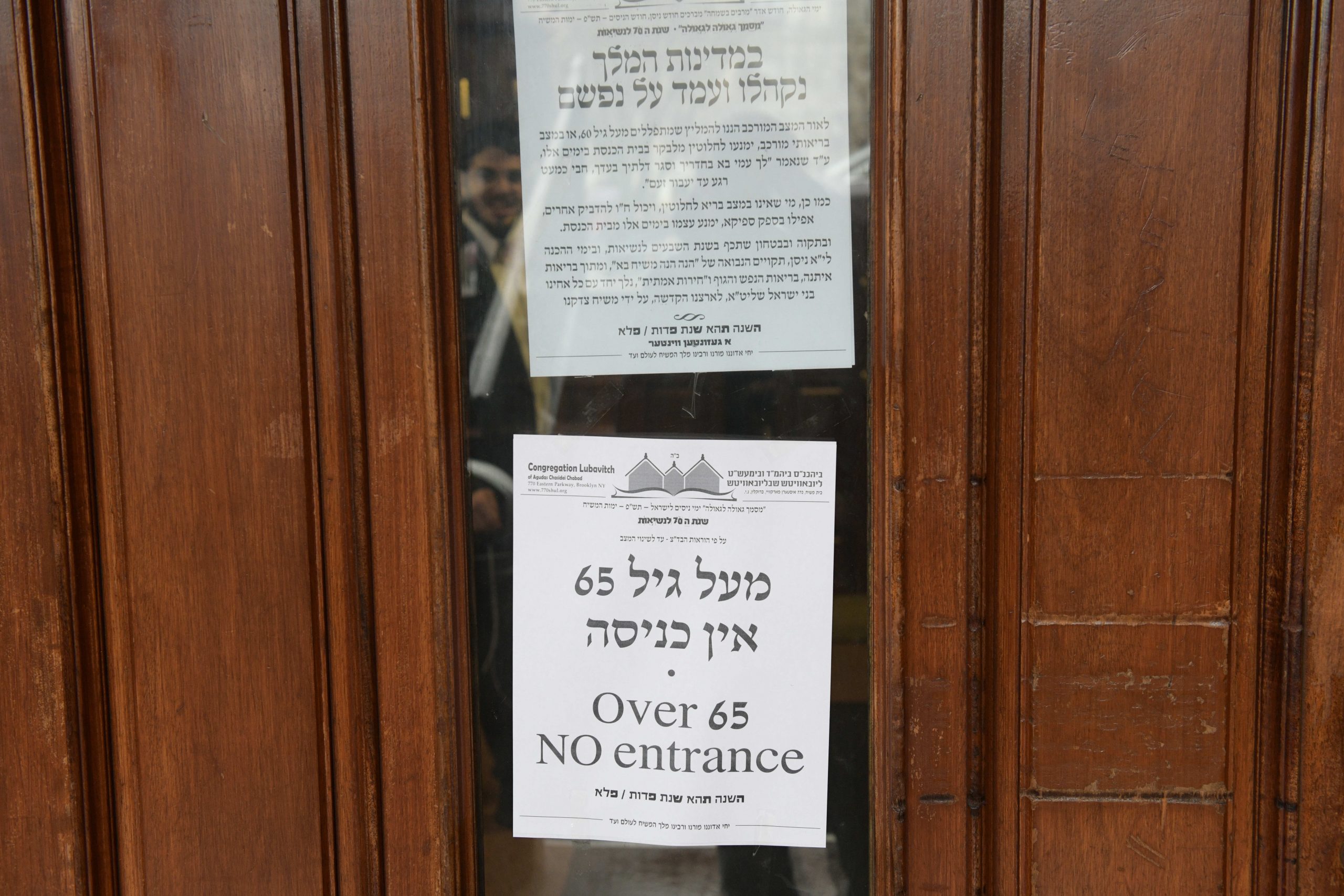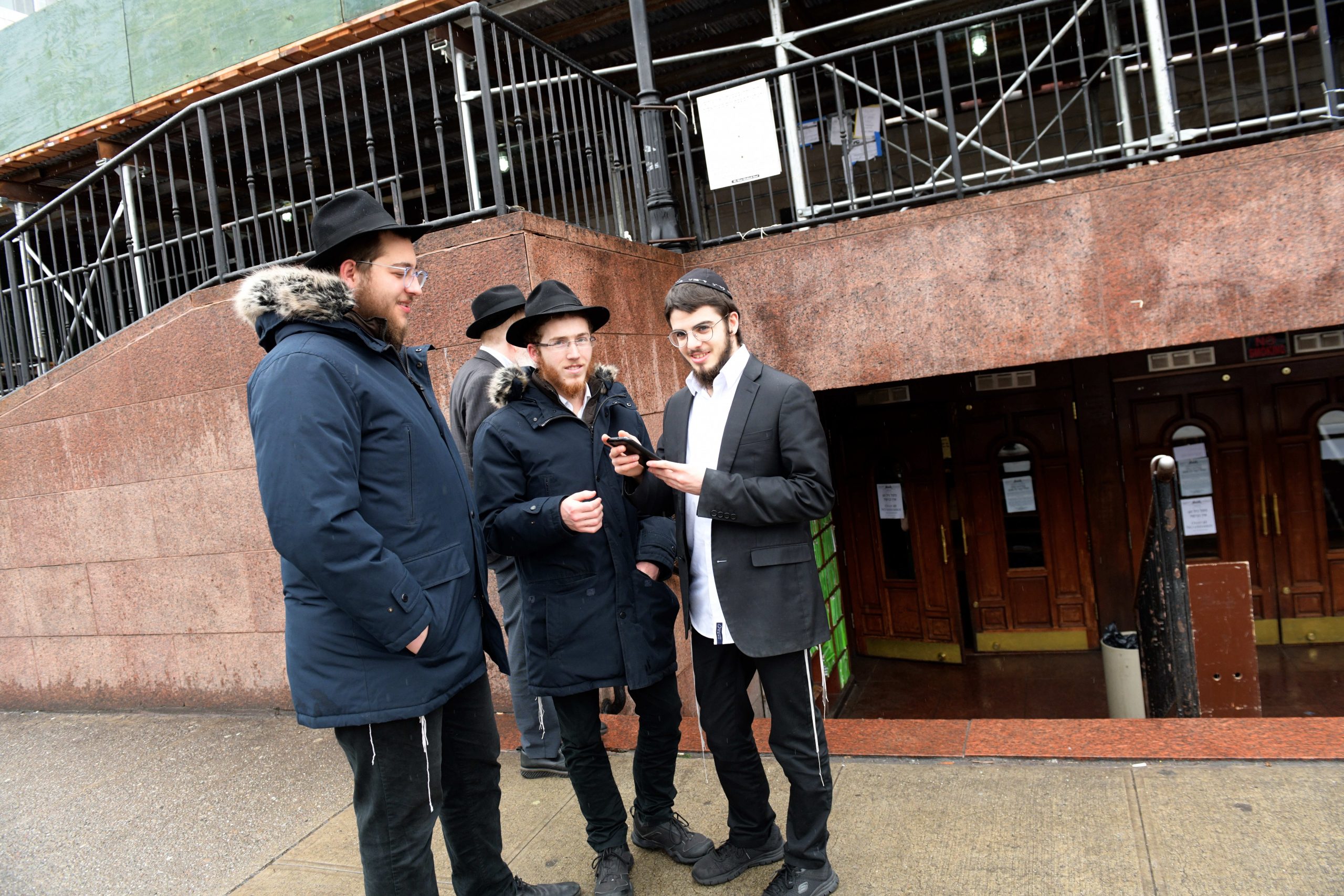The most crowded synagogues in the city are mostly quiet this week as most top rabbis are advising their congregations to take all precautions to prevent the spread of coronavirus or are telling people to pray from home.
The most popular Lubavitch synagogue at the World Lubavich Center in Crown Heights, normally teaming with people all day, but was sparsely attended as signs on the door now tell people that those over age 65 were prohibited from praying in the synagogue because of the high risk to their lives.
Most of those attending synagogue at 770 Eastern Parkway were younger people who say they understand the risk to their health was much less than those who were more aged. However, rabbis have told their congregants that they must observe Health Department regulations in this regard, including washing and sanitizing hands, practicing social separation and to not attend synagogue if feeling ill.
Motti Seligson, director of communications for Chabad.org, said services at most of the larger synagogues are staggered and multiple services are held to keep attendance lower throughout the day.
“The numbers of people are down, the concentrations are fewer people together than normal – people just have to have sense and do the right things,” Seligson said.
Rabbi Joseph Potasnik, executive vice president of the Board of Rabbis said many congregations are using technology to keep the people praying together.
“Synagogues are doing a lot of virtual programs, to keep community together and they do not have to be face to face,” Potasnik said. “Where they are praying, they have much smaller groups, exercising necessary social distancing. There are still people using face-to-face – but in much smaller groups. But again, people of certain age should not to come; if you have health issues you should not come. We must pray in a safe framework because nothing matters more than health, can’t jeopardize your health to keep tradition – that is not acceptable. Jewish law mandates preservation of Jewish health.”
Potasnik said every body must do what is responsible and listen to daily directives from the Department of Health.
“Look at daily briefings, it’s imperative for people keep informed and sacred space must be safe space,” Potasnik said.
A Hatzalah volunteer ambulance pulled up in front of the synagogue this morning, but was only dropping someone off. They all wore protective masks. One of the volunteers turned and said, “people received a letter than no one should go to synagogue.” One young man leaving the synagogue said, “it will never happen.”

“I have faith and God willing, we will be okay,” said Baruch Shemsov, a 25 year old Orthodox Jew who prayed anyway. “We have to have at least 10 people for a minyan, so we must have community. But most people are doing the right things.”
Zalmy Engel, 17, exited the synagogue and said the crowd was much lighter, unlike last Tuesday’s Purim celebration in which people were jam packed into the building.

“This is a public location asking people over 65 not to come in because they are at most risk, but it is much emptier,” Engel said. “There is the concept of praying with a korum, a minyan – but safety is first. Even the rabbis are saying if you feel even a slightest bit sick, you shouldn’t come to synagogue – stay at home, it’s fine.”
Engel said he wasn’t worried about himself because he says “younger people are not affected.”

“I’m only 17 and they say it doesn’t really effect younger people, so I’m not really worried about myself. It’s other people that I might infect like my mother – they shouldn’t take the chance.”
Rabbi Elchonon Schegelov said he is not afraid to go into synagogue because people were taking precautions and it wasn’t very crowded. But he said “cleanliness is most important now.”
“You have to remember to have to wash your hands especially during these times,” he said. “Last week’s reading of the torah portion, when the plague was going on they knew the importance of washing hands and feet and they stopped dying. They figured it out even back then. Those not washing were getting sick and dying.”


































